The Ouidah Auction Square
Also called "Place Chacha", the Ouidah auction place is a place that marks the beginning of the slave route. It is a market where goods of all kinds were exchanged. While Europeans brought manufactured goods there, the kings of Dahomey offered slaves there through the Brazilian slave trader named Don Francisco de Souza. It is to this merchant that the auction place owes its name since his nickname was Cha cha (which means quickly quickly in the Fon gbé language).
The slaves sold on Cha Cha Square are men, women and children, generally prisoners of war, adulterers or victims of raids. They are sold like vulgar commodities for a few junk. To give you an idea of the thing, here is a caricature of the public auctions that took place there:
- 1 pipe is traded for 5 slaves;
- 1 bottle of alcohol was worth 10 slaves;
- 1 cannon is traded for 15 able-bodied men or 21 women...
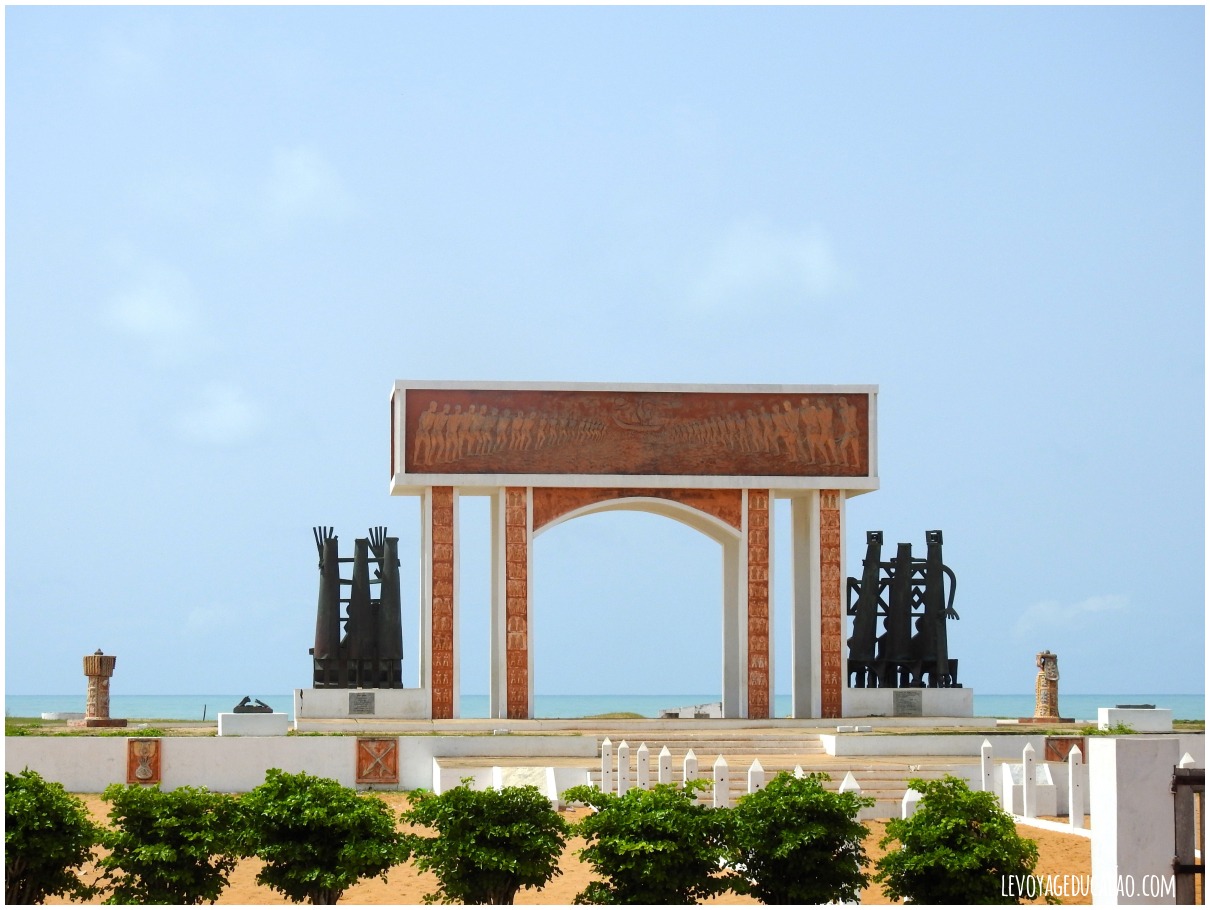
The door of no return, a place steeped in history to visit in Ouidah
The Gate of No Return is the place that marks the end of the slave route. Erected in 1995 by UNESCO, it is a exceptional place of memory to visit in Ouidah. After crossing the slave route, it was here that slaves embarked for the Americas. This tourist site in Ouidah therefore symbolizes the passage of future survivors to the other world and especially the impossibility for them to return to the fold.
The sea being shallow on the maritime coasts of Ouidah, the ships did not dock near the beach. The slaves who crossed the door of no return are therefore piled up in makeshift canoes and canoes, chained to each other at the feet and neck, to be led to the slave ships. It was the slaves' last chance to kill themselves by drowning in order to escape their disastrous fate.
There are many souvenir stalls near the huge door of no return. When you visit the sights in Ouidah, consider taking a trip there. It is advisable to absolutely be accompanied by a tourist guide during a visit to the city. This will allow you to fully understand the history of the more than 2 million slaves forced to leave their country for the Americas.
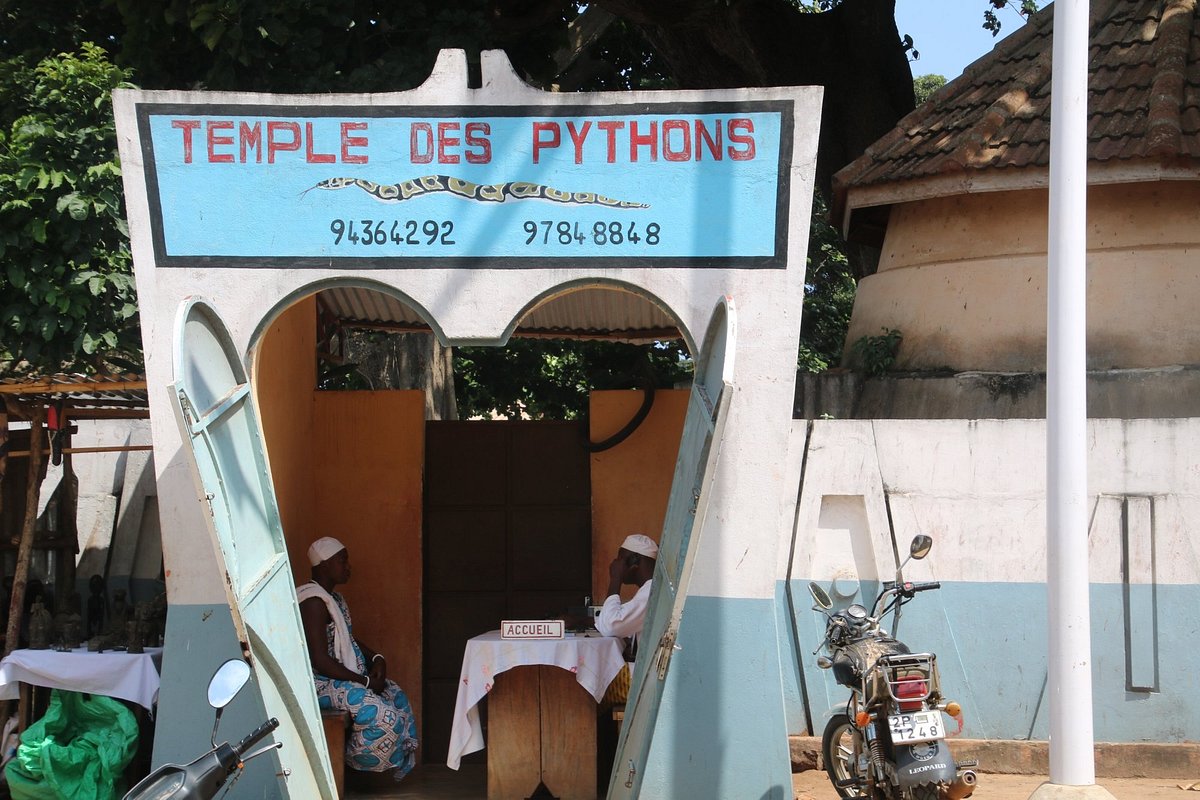
The temple of the Pythons, one of the must-see tourist sites in Ouidah
The temple of the Pythons is the principal temple vaudou de Ouidah. It is accessible to both insiders and uninitiated. The place is home to more than two hundred (200) royal pythons revered by voodoo followers in the city. Obviously, these snakes are entirely harmless. It is therefore possible to wrap them around the neck to make an extraordinary ornament before immortalizing the moment with photographs.
The pythons of this temple located in Ouidah are released in the city every month. They leave to hunt rodents and small mammals before returning to the temple after filling their stomachs. If it happens that one of these snakes gets lost in the house of a resident of the city, the latter must bring it back to the temple. Indeed, it is forbidden in Ouidah to kill pythons, and even to eat them.
On this tourist site of Ouidah, we do not only find pythons. The temple also houses a sacred jar. This jar is used during a ceremony that takes place every 7 years with the aim of purifying the city. Similarly, there is an old tree that would represent " the spirit of the ancients ". The priest from time to time makes animal sacrifices at the feet of this arbiter to invoke peace on the city.
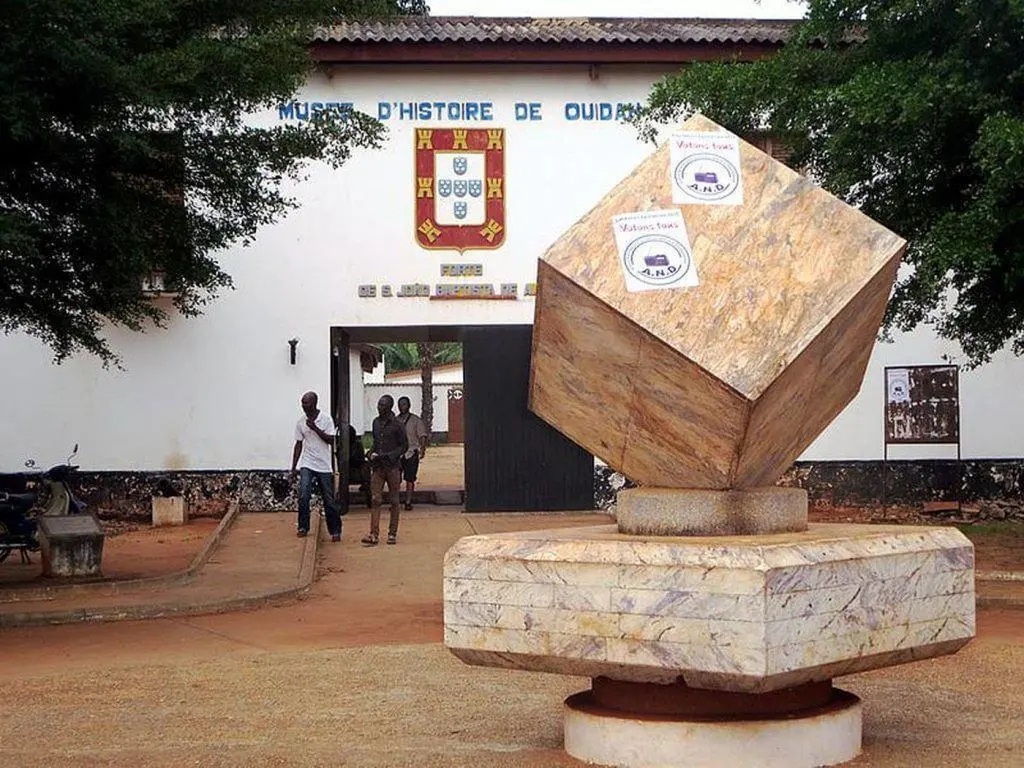
The Ouidah History Museum, a rich tourist site to discover
The Ouidah History Museum houses more than 700 objects and collectibles. These pieces deal with the history, archeology and arts of the city of Ouidah (once the main slave export port in West Africa). The center is located within the walls of the old Portuguese fort installed in the city, not far from the slave route. This former fortified trading post was burned down by its occupants before their departure. However, the place has been rehabilitated and then classified as a historic monument since 1964.
It was in 1967 that the Ouidah History Museum opened its doors with a total of 11 rooms rich in historical and cultural objects and illustrations. The collections of this museum are classified according to various themes, namely:
- The Portuguese Fort ;
- The Xweda Kingdom ;
- The Kingdom of Dahomey ;
- The Slave Trade ;
- Voodoo
The cultural links that bind Benin to the New World are also represented. All these aforementioned collections, accumulated over the years, are the result of several archaeological excavations carried out mainly in the area of Ouidah and Savi.
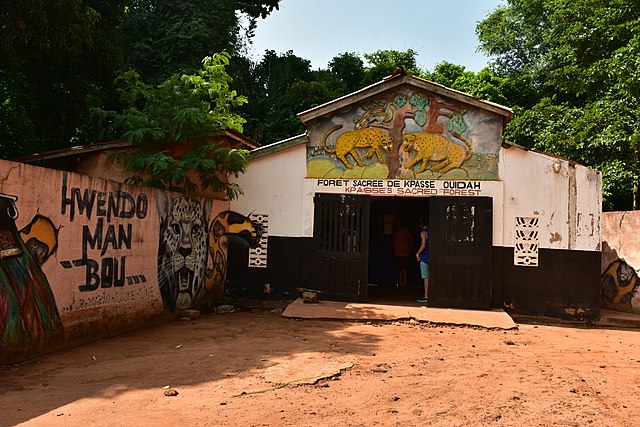
La forêt sacrée de Kpassè
The sacred forest of Kpassè is a tourist site in Ouidah dedicated to Vodou deities. Originally, this forest extended over about thirty hectares. However, the extension of the city led to the reduction of this area. Today, this forest covers 4 hectares. It is sacred because of an event that marked the life of King Kpassè, founder of Ouidah. According to legend, the king miraculously disappeared and turned into a tree (an iroko to be precise) in order to escape his detractors.
The sacred forest of Kpassè is also an open-air museum that can be visited at will. This place has a very rich cultural and historical heritage. Several statues are erected there in honor of deities such as:
- Mami wata ;
- Hêbiosso ;
- Tolègba
- Gu ;
- Sapkata…












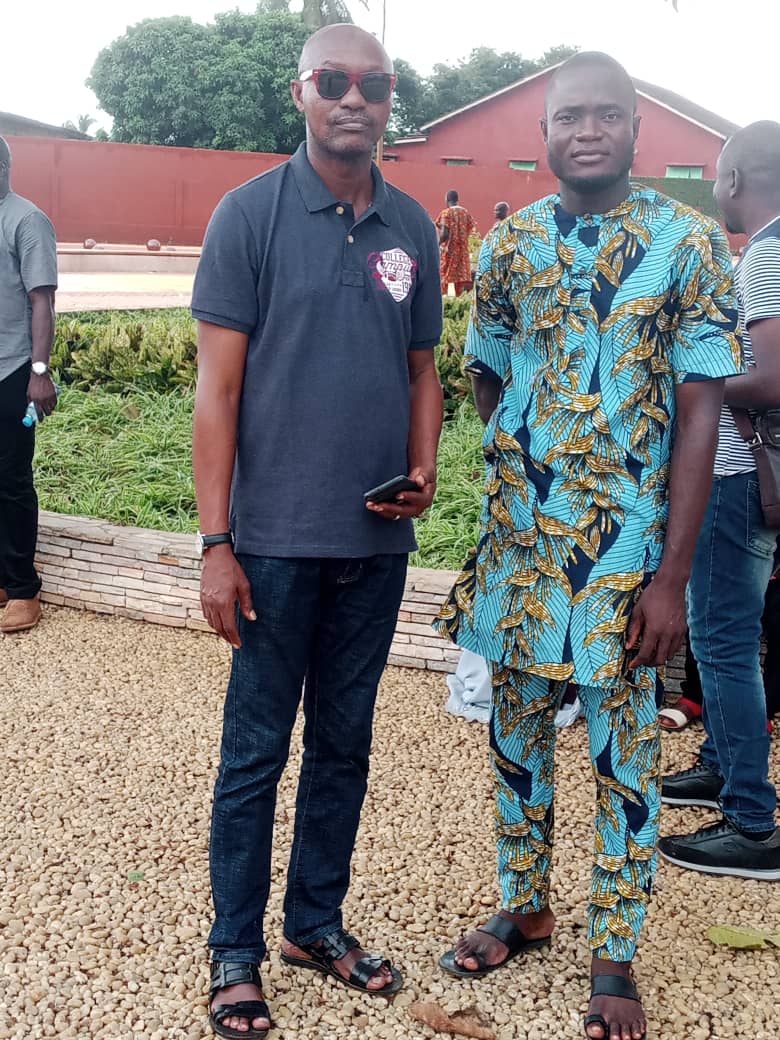
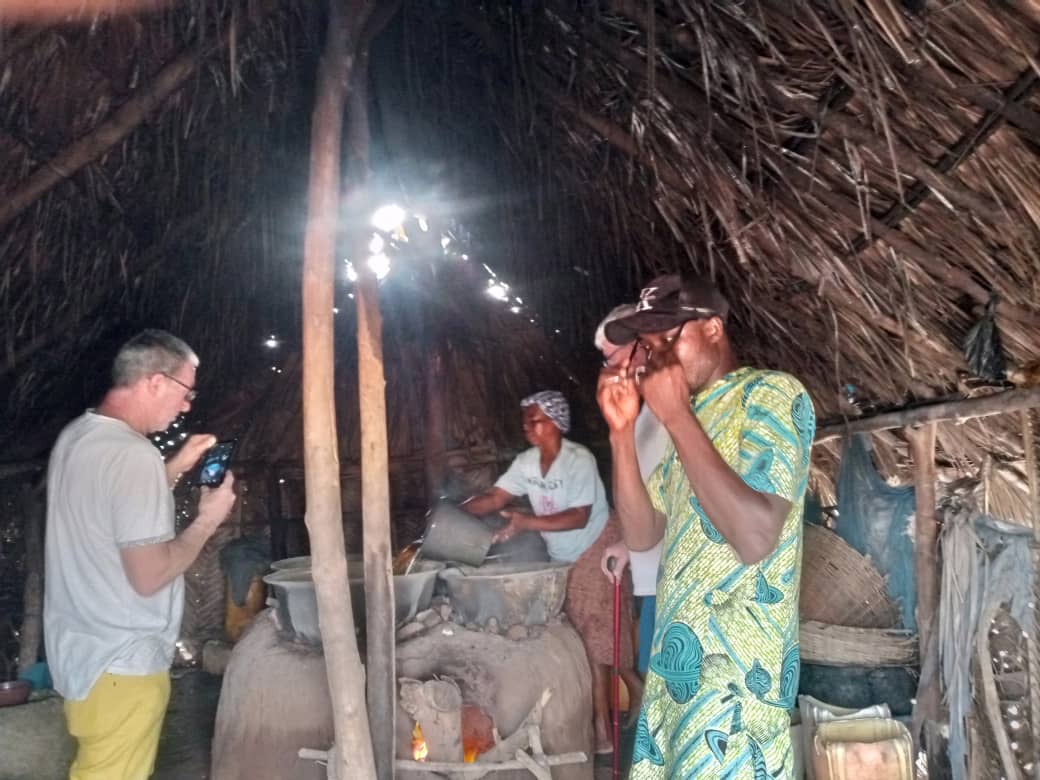
20 Avis
• A discovery of Benin from every angle
• Authentic encounters with the population
• Memorable canoe crossings
• A circuit combining solidarity and discovery of Benin
• Participation in local development actions
• Authentic encounters with the population
Add a comment
Your email address will not be published. Mandatory fields are marked with *